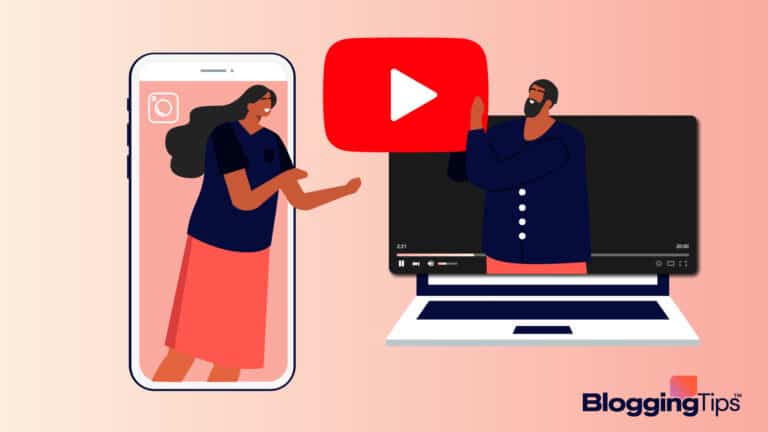You want your site to be visible to as many people as possible.
That’s why you spend time optimizing it for search engines like Google.
But what about Google Discover?
Many site owners don’t realize that Discover is a powerful tool that can help them reach a wider audience.
In this guide, we’ll cover everything you need to know about optimizing your site for Discover.
Frequently Asked Questions
What is Google Discover?
Google Discover is a content discovery service provided by Google.
It is designed to surface content that is interesting and relevant to the user, and it is available on a number of platforms, including the Google app for Android and iOS.
Unlike other Google products, such as Search and News, Discover does not require a query from the user in order to surface content.
Instead, it uses a variety of signals, such as the user’s location, time of day, and past behavior, to display content that may be of interest.
What Is the Difference Between Google Discover and Google News?
Google Discover and Google News are both content discovery services provided by Google, but there are a few key differences between them.
Google News is a news aggregation service that curates news stories from a variety of sources and organizes them into categories like Top Stories, World, and Business.
Users can also search for news topics they want to learn more about.
Google Discover, on the other hand, is a content discovery service that is designed to surface content that is interesting and relevant to the user.
Why Should You Care About Google Discover?
There are a number of reasons why you should care about Google Discover as a site owner.
Here are a few of the most important ones:
- Google Discover can help you reach a wider audience and drive traffic to your site–Discover does not require a query from the user in order to surface content.
- This means that your content has the potential to be seen by a wider audience than it would be if it were only appearing in Search.
- Google Discover can help increase engagement with your content–Because content is surfaced based on factors like the user’s location and past behavior, it is more likely to be relevant and interesting to the user, which can lead to increased engagement.
How Does Content Appear in Google Discover?
There are a number of factors that can influence whether or not your content appears in Google Discover.
- Google takes a number of factors into account when determining whether to show content in Discover, including:
- The user’s location
- The user’s past behavior
- The time of day
- The user’s device (for example, Discover is more likely to show content from sites that are optimized for mobile devices)
- Content freshness (for example, Discover is more likely to show content that has been recently published)
- Whether the content is from a site that the user has visited before
- Whether the content is from a site that the user has added to their Google Feed
Additionally, Google Discover uses a Follow feature that allows users to follow their favorite websites.
This will populate their Discover feed with updated content from sites they follow.
How to Optimize Your Site for Google Discover
Luckily, there’s quite a bit of overlap when it comes to optimizing your content for SEO in general, and optimizing it for Google Discover as well.
However, because Google Discover operates differently than Search, there are a few key areas you’ll want to specifically focus on to get the most out of it.
1. Verify and Index Your Site
The first step is to verify your site with Google and make sure that it’s indexed.
This is usually a straightforward, painless process that in most cases only requires a few simple steps.
We put together a handy guide to help you register your site with Google and other search engines, just in case you need a little help.
2. Understand E-A-T Signals
Expertise, Authority, and Trustworthiness (EAT) signals are important for any website that wants to rank well in Google, but they’re especially important for Google Discover.
This is because Discover relies heavily on these signals to determine which content to surface.
There are a number of ways you can signal to Google that your content is high quality and trustworthy.
Some of the most important ones include:
- Making sure your content is well-researched and accurate
- Linking to reputable sources
- Using an authoritative tone
- Avoiding excessive advertising
3. Stay Away from Clickbait
Just as with Search, one of the quickest ways to lose ranking in Google Discover is to use clickbait titles.
Because clickbait titles are often inaccurate or misleading, they can damage your site’s EAT signals, which will in turn hurt your ranking.
Additionally, clickbait titles tend to have a high bounce rate, which is another factor that can negatively impact your ranking.
To avoid using clickbait titles, make sure your titles accurately reflect the content of your article and you’re providing valuable, original information to your audience.
4. Create Timely Content
Creating timely content is important for any website that wants to rank well in Google, but it’s especially important for Google Discover.
This is because Discover relies heavily on freshness signals to determine which content to surface.
There are a number of ways you can signal to Google that your content is timely and relevant.
Some of the most important ones include:
- Publishing content on a regular basis
- Updating your content regularly
- Linking to current news stories
- Using relevant keywords and phrases
- Creating plenty of evergreen content
To find out what’s currently trending, you can use Google Trends.
Just enter in a keyword or phrase related to your niche, and you’ll see a list of related topics that are currently popular.
5. Optimize Content for Mobile
Since Google Discover is primarily aimed at mobile users, making sure your content is optimized for mobile devices is vital.
This means that your text should be easy to read and your images should be sized appropriately for smaller screens.
The best way to optimize your content for mobile devices is to use a responsive design approach.
This means that you’ll create a template that will automatically adjust the layout of your content to fit any screen size or device.
6. Incorporate High-Quality Images
In addition to being optimized for mobile devices, your content should also include high-quality images.
This is because images are an important part of the Discover experience.
Including high-quality, relevant, and original images in your content will not only make it more visually appealing, but it will also help you rank higher in Google Discover.
This is because Google Discover takes into account the overall quality of your content when determining what to surface.
7. Learn from Your Discover Performance Report
If you have content featured in Discover, you’ll be able to access a performance report in Google Search Console, where you can see your impressions and other metrics to help you track how well you’re doing.
Wrapping Up
Google Discover is an important part of the Google platform, and optimizing your site for this Discover as well as Search is essential for success.
By paying attention to EAT signals, incorporating high-quality images, making sure your content is timely and relevant, and avoiding clickbait titles, you can ensure that your site gets featured in Discover.
What are your favorite aspects of Google Discover?
Let us know in the comments!




